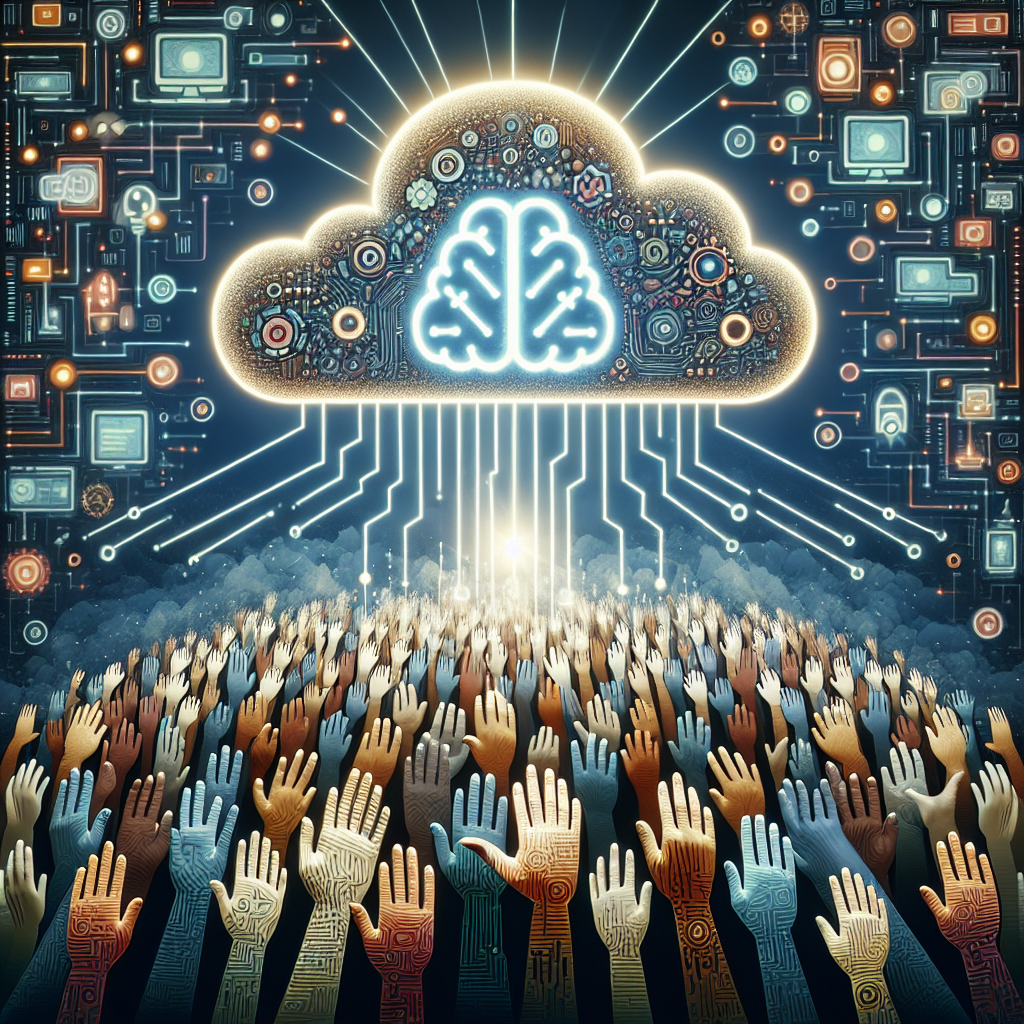In recent years, the concept of democratizing artificial intelligence (AI) has gained momentum as more and more organizations and individuals seek to harness the power of AI technology for the benefit of society as a whole. Democratizing AI refers to the idea of making AI accessible to a wider range of users, not just to a select few who have the resources and expertise to develop and deploy AI applications. This democratization of AI has the potential to revolutionize various industries and improve the quality of life for people around the world. In this article, we will explore the journey from the concept of democratizing AI to its realization, and the potential impact it could have on society.
The concept of democratizing AI is rooted in the belief that AI technology has the potential to transform various aspects of our lives, from healthcare and education to transportation and finance. However, in order for AI to reach its full potential, it needs to be accessible to a wider range of users, including those who may not have a background in data science or programming. This is where the concept of democratizing AI comes into play.
One of the key drivers of the democratization of AI is the development of user-friendly AI tools and platforms that make it easier for non-experts to build and deploy AI applications. These tools often come in the form of drag-and-drop interfaces or pre-built models that can be easily customized to fit a specific use case. By removing the technical barriers to AI adoption, these tools enable a wider range of users to leverage the power of AI technology in their work.
Another key aspect of democratizing AI is the emphasis on transparency and accountability in AI development. As AI technology becomes more prevalent in society, there is a growing concern about the potential ethical implications of AI applications, such as bias and discrimination. By promoting transparency and accountability in AI development, organizations can ensure that AI systems are fair, reliable, and trustworthy.
The democratization of AI also involves promoting diversity and inclusion in the AI workforce. Historically, the field of AI has been dominated by a small group of experts, often from privileged backgrounds. By promoting diversity and inclusion in the AI workforce, organizations can ensure that AI technology reflects the needs and values of a diverse range of users.
Overall, the democratization of AI has the potential to unlock new opportunities for innovation and collaboration, leading to a more inclusive and equitable society. By making AI technology more accessible to a wider range of users, we can harness the full potential of AI to address some of the most pressing challenges facing society today.
FAQs:
Q: What are some examples of democratizing AI in action?
A: One example of democratizing AI is the development of AI-powered chatbots that can assist with customer service inquiries. These chatbots are often built using user-friendly platforms that enable non-experts to create and deploy their own chatbot applications.
Q: How can organizations promote diversity and inclusion in the AI workforce?
A: Organizations can promote diversity and inclusion in the AI workforce by implementing policies and practices that support the recruitment and retention of diverse talent, such as offering training programs and mentorship opportunities for underrepresented groups.
Q: What are some potential challenges to the democratization of AI?
A: Some potential challenges to the democratization of AI include concerns about data privacy and security, as well as the potential for AI technology to exacerbate existing inequalities in society. It is important for organizations to address these challenges in order to ensure that AI technology benefits everyone.
In conclusion, the journey from the concept of democratizing AI to its realization is an ongoing process that requires collaboration and innovation from a wide range of stakeholders. By making AI technology more accessible to a wider range of users, we can harness the full potential of AI to create a more inclusive and equitable society. With the right tools, policies, and practices in place, we can democratize AI and unlock new opportunities for innovation and collaboration that benefit everyone.

